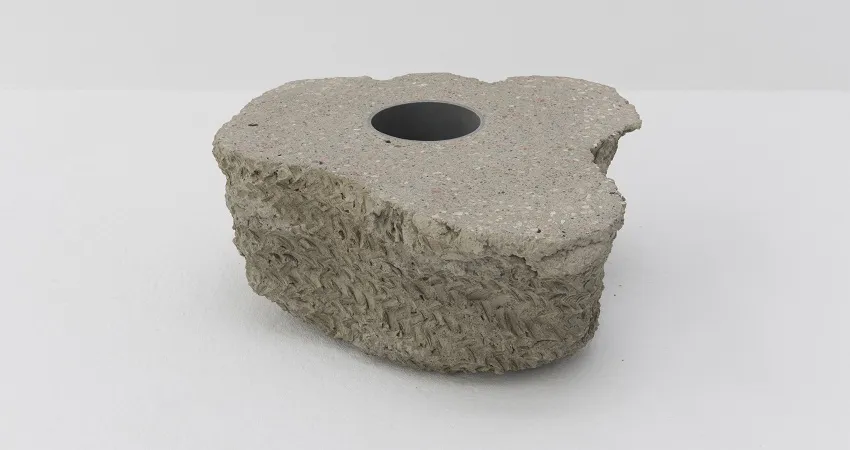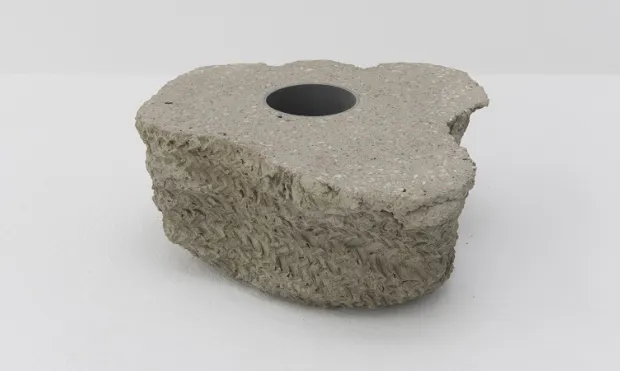Winning by Losing

Tuesday - Sunday, 10 am - 8 pm
Free entry
Winning by Losing, curated by Catalina Lozano, questions and rethinks the paradigm of progress characteristic of modernity by exploring the dialectical relationship between winning and losing in relation to processes of change over time and that manifests itself in the potential stamps that emerge during their occurance.
On the one hand, it takes up the notion of regressive evolution, that is, the phenomenon by which the evolution of a species is benefited by the loss of a feature acquired in the evolutionary process. On the other, it finds echo in the way in which the sociologist Norbert Elias understood how a series of effective rituals can be petrified, become an end in themselves and naturalized in moments of transition within civilizing processes - modernity, as a permanent state of liminality, would then be an exceptional case study. In both cases, the rudiments of previous forms that were efficient can survive as marks, sometimes ornamental, that often enable the projection of new forms into the future.
Winning by Losing seeks, through contemporary artistic practices and some historical documents, to identify gestures and traces that bear witness to the subversion of certain temporal orders or the superposition of historical marks, critically analyzing contemporary rituals or the ideological naturalization of a supposed normality. The project also pays particular attention to instances in which the notions of evolution are disarmed -mainly in non-Western ways of thinking-, while considering the colonial stamp as the most embedded and efficacious in the contemporary world and, for that reason, the most susceptible to being disturbed.
* Winning by losing. Title taken from Spyros Papapetros On the Animation of the Inorganic: Art, Architecture and the Extension of Life, London and Chicago: University of Chicago Press, 2012.
Artists: Caroline Achaintre, Pauline Boudry y Renate Lorenz, Marcel Broodthaers, Cian Dayrit, Aleksandra Domanović, Juan Downey, Elvira Espejo Ayca, Patricia Esquivias, Sheroanawe Hakihiiwe, Geir Tore Holm, Jochen Lempert, Sean Lynch, Asier Mendizabal, Paper Tiger TV, Xabier Salaberria, Jorge Satorre, Rosemarie Trockel.
Catalina Lozano (Bogotá, 1979) is an independent curator and researcher. She is currently Associate Curator at Museo Jumex in Mexico City. Her research interests and curatorial practice are focused on minor historical narratives that question hegemonic forms of knowledge. Analyzing colonial narratives and deconstructing the modern divide between nature and culture have acted as departure points for many of her curatorial and editorial projects. She was part of the artistic team of the 8th Berlin Biennale (2014). Recent projects include “…there, but empty”, joségarcía ,mx (2017), Lorena Espitia: Unfollow me morning star, Museo de Arte Moderno de Medellín (2017), The Resemblance is All in the Eye of the Beholder, Galería Agustina Ferreyra, San Juan (2016), Ce qui ne sert pas s’oublie, CAPC Bordeaux (2015), A machine desires instruction as a garden desires discipline, MARCO, Vigo, FRAC Lorraine and Alhóndiga Bilbao (2013-14), Being an Island (with Kasha Bittner), daadgalerie, Berlín (2013). Together with Mathieu K. Abonnenc and Lotte Arndt, she co-edited the book Crawling Doubles: Colonial Collecting and Affects (B42, Paris). Her book The Cure was published by A.C.A. Public (Ireland) in 2018.
See the exhibition on Flickr



